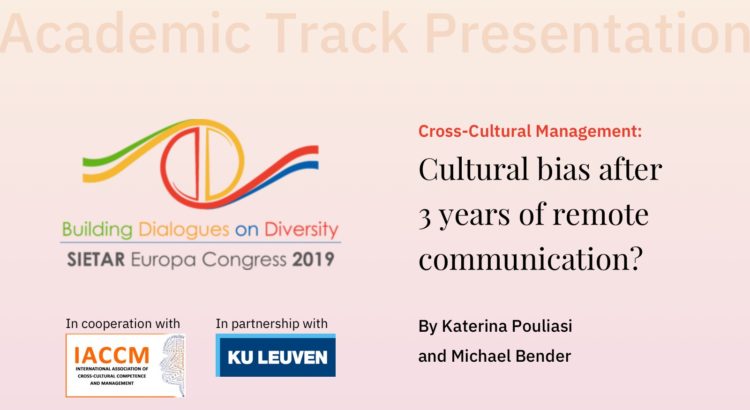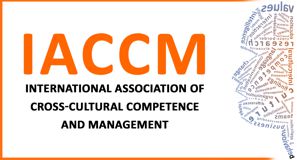Cross-Cultural Management: Cultural bias after 3 years of daily remote communication?
By Dr. Katerina Pouliasi (in2cultures) and Dr Michael Bender (Assistant Professor, Tilburg University) the Netherlands
Presentation for the Academic track of the 2019 SIETAR Europe Congress
Abstract
In highly globalized markets, international alliances enhance competitiveness – but considerations of challenges due to cultural differences often lag behind. We set out to asses Intercultural Competence (ICC) via an experimental shifting of cultural settings among managers and IT experts of local branches of a multinational company in Greece and the Netherlands. We presented participants with cultural icons from the two cultures (GR/NL) in a Cultural Frame Switching design (Hong et al., 2000) and assessed their subsequent implicit and explicit self-evaluations and perceived cultural conflict between the two cultures. The two samples differed in how conflict predicted their self-evaluations in the experiment: Dutch employees did not adapt their self-evaluations in response to the cultural cues. In contrast, Greek employees adjust their responses to cultural cues (when conflict is low), but also show reactance behaviour in implicit self-evaluations (when conflict is high), replicating previous studies with individuals from a collectivist background. Further comparisons on cultural dimensions and attitude to hierarchy reveal non-homogenous trends in the Greek sample. We discuss how ICC may depend on cultural conflict and its implications for organizations engaging in globalization.
The Academic track of the SIETAR Europe Congress is organised by the IACCM
Official Congress Days: from the 30th of May to the 1st of June 2019
Full Program, Registration please visit here
Location: KU Leuven | ON2, Belgium


